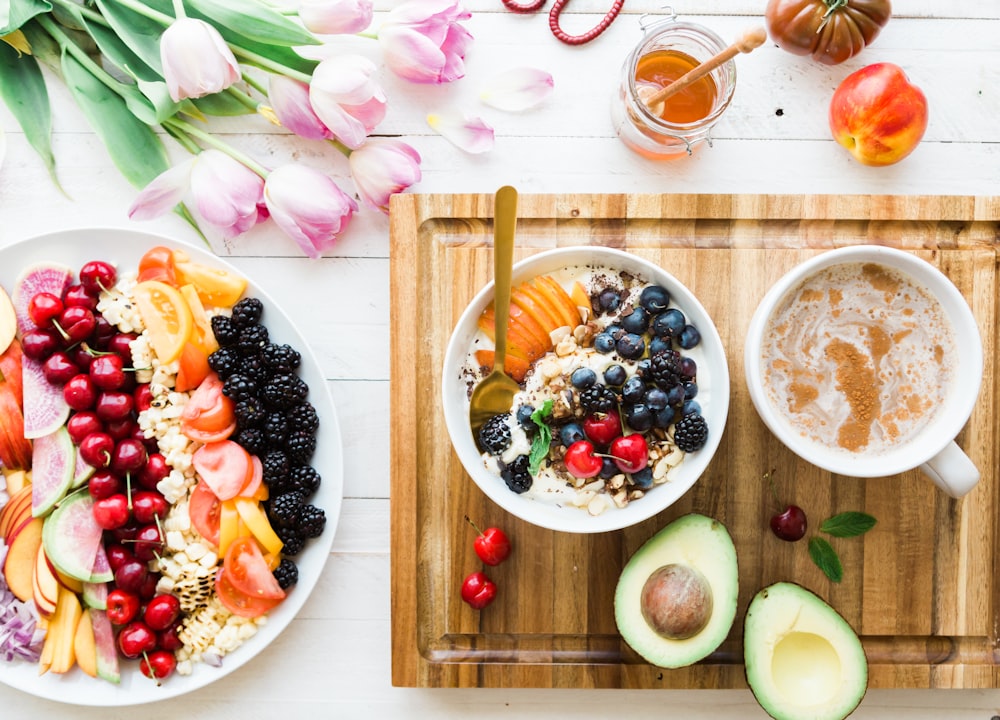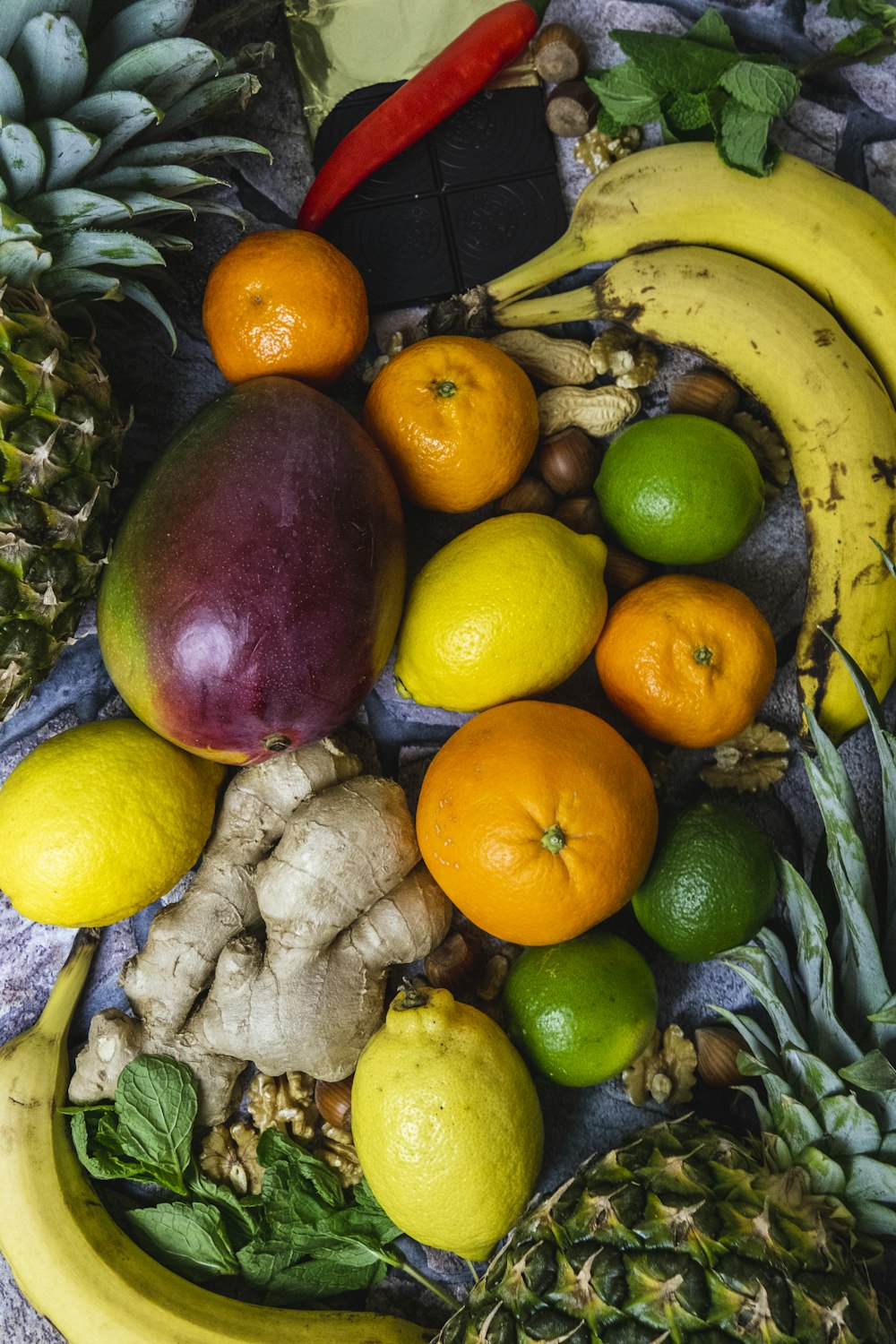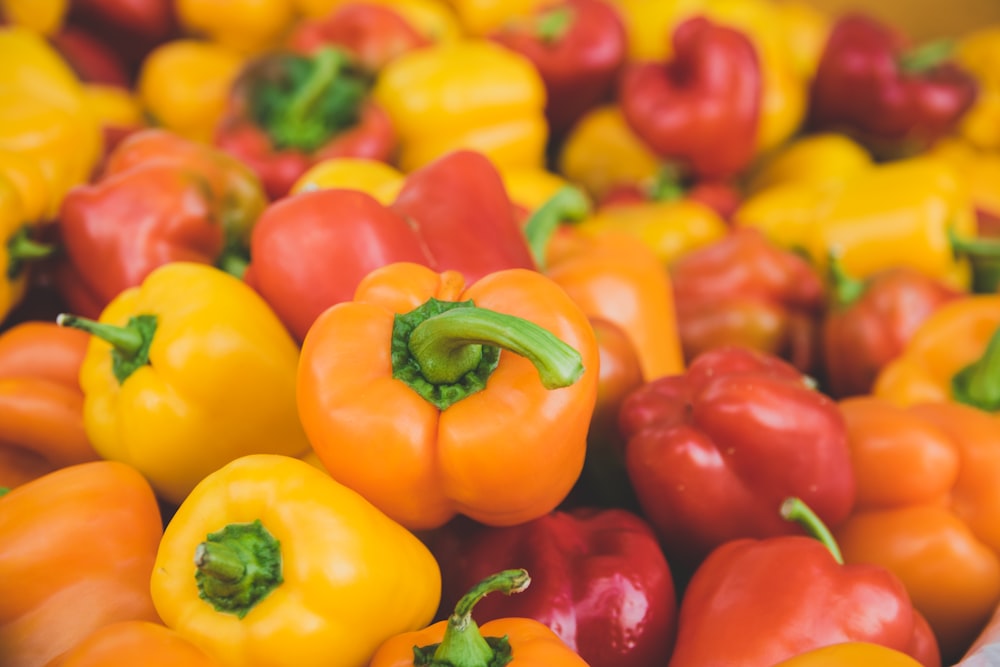Eat Good, Feel Good: Healthy Eating for Seniors

With age, healthy eating is crucial. It can help increase resistance to illness, improve mental acuteness, maintain energy levels, and build immunity to fight diseases.
Healthy eating can also be the key to an emotionally balanced vision and an optimistic outlook towards life. Still, eating a healthy and balanced diet involves knowing what to consume and enjoying the fresh, nutritious, and tasty food in the company of acquaintances and relatives.
Eat Good, Feel Good
Following a healthy, proper, and a balanced diet is important at every age. Professionals at Harvard University even mentioned that healthy eating for older adults not only positively impacts the body, but also the emotional and mental well-being—extending the quality of life.
Improving eating habits also creates a positive impact on your social and emotional well-being. Good nutrition boosts immunity, keeps weight in control, fights illness-causing toxins, keeps the heart healthy, alleviates the risk of heart (cardiovascular) disease, stroke, high blood pressure, type-2 diabetes, bone loss, and malignancy. Along with regular physical activity, a healthy eating habits can also offer enhanced independence as you age.
As a matter of fact, healthy eating choices and a nutrient-rich diet ensure healthy mental health. Research suggests that seniors who consume lots of fresh fruits, green leafy veggies, nuts, and fish rich in omega-3 fatty acids have an enhanced concentration and memory. Furthermore, an improved mental focus decreases the risk of memory disorders such as Alzheimer’s disease. For instance, eating an antioxidant-rich green tea can be beneficial in boosting cognitive abilities and mental alertness as you age. Another example is when you eat wholesome meals, if you do, it can provide energy to perform daily activities and help you look better, resulting in a boost of mood and self-esteem.
See? They are all interrelated—when you eat good, you feel good.
Healthy Eating Guide for Seniors
With this article, a healthy eating guide for seniors, we hope that you find the support you need to keep the complex workings of your human body functioning optimally.
In summary, remember that a healthy diet plan encompasses various types of meals from the food pyramid. But, it should also focus on wholesome foods such as whole grains, heaps of veggies, fresh fruits, fish, poultry, eggs, fat-free or low-fat dairy, nuts, lean meat (which is the best protein for seniors over 40), and beans. It should also be low in salt (sodium), saturated fats, trans fats, and other unhealthy food items.
Healthy Eating Habits
With age, the body processes changes. The metabolism slows down, some organs become weak, and the immunity also declines. These changes make the body more predisposed to several chronic health conditions. The good news, however, is that by following healthy eating guidelines and adopting a nutrient rich diet plan, you can expect an improvement in your physical and mental health. Several healthy eating books are also available that serve as a healthy eating guide for seniors.
But here are a few tips to improve your nutritional health as you age:
Plan your meals
Planning meals week after week helps to follow a strict diet plan and healthy eating choices. Planned meals ensure better adherence to nutritional guidelines and higher food variety. It also ensures that you limit saturated and trans fats, sodium, and added sugars.
Consume a variety of foods
Eating a variety of foods will ensure that you are getting all of the nutrients that your body needs. According to the National Council on Aging (NCOA), a healthy meal consists of fruits and vegetables, a lean protein source, whole grains, and low-fat dairy.
Minimize your use of table salt
As you get older, your senses may decline, including your sense of taste and smell. This is why more often than not, many seniors prefer to season meals with more salt to increase the flavour. However, the U.S. Food and Drug Administration (USFDA) reports that consuming too much sodium (salt) can result in high blood pressure, which may ultimately lead to heart disease, kidney disease, or a brain attack. So make sure that you are consuming no more than 2.3 grams of sodium per day.
Consume more water and liquids
The sense of thirst declines with growing age. To combat this, health practitioners suggest drinking plenty of water every day to remain hydrated. This means that even if you don't exactly feel thirsty, you try to drink water. Treat water as the best nutritional drink for seniors. Hydration ensures the prevention of dehydration, constipation, headaches, formation of kidney stones, and significantly increase energy levels and improve brain function. 100% pure, fresh fruits or vegetable juice and fat-free milk are also healthy options to consider besides water.
Follow recommended food serving for age
In order to maintain a healthy weight and have the right amount of vitamins and minerals, it is essential that you follow the recommended serving sizes specific for age. Talk to your family doctor or a nutritionist if you want advice that caters to your dietary needs personally.
Consider taking dietary supplements
Consuming foods such as fruits and vegetables is the best way to get the vitamins and minerals you need, but it may sometimes not be enough. If it is your case, you may want to consider discussing with your doctor about the option of taking supplemental vitamins and minerals to ensure your overall health.

You can take multivitamins, immune support booster, or any other nutritional supplement that you need, as long as you get a go signal from your family physician or primary care provider.
Season your meals with herbs and spices
Seasoning your meals with various herbs and spices offers a myriad of health benefits. For example, cayenne eases pain, cinnamon has antidiabetic effects, garlic boosts heart health, peppermint alleviates IBS pain and reduces nausea, and turmeric contains curcumin which has anti-inflammatory effects.
Reduce your consumption of foods high in sugar
Added refined sugar should be kept to a minimum to avoid unwanted calories that offer no nutritional value. If you are a sweet tooth, you can slowly reduce the sugary treats, find healthy foods to replace your sugar cravings like eating whole foods that are naturally sweet, including fruits, cashews, pecans, sweet peppers, and yams.
Choose healthy fats like omega 3s
Healthy fats in the diet are crucial for good health. Avoid fats such as saturated and artificial trans fats. Healthy monounsaturated and polyunsaturated fats in foods like cheese, avocadoes, dark chocolate, etc. can help protect your body against diseases, lower blood pressure, prevent abnormal heart rhythms, and boost mood or mental well-being. Sunflower seeds, avocado, walnuts, pumpkin seeds, soymilk, safflower oil, olive oil, soybean, tofu, and fish (salmon, mackerel, tuna, herring, sardines, trout) high in omega-3 fatty acids are excellent choices.

Omega 3 fatty acids are also available as supplements, which can offer the right amount of healthy fats that you need for your body to remain healthy.
Give attention to nutrition labels
When doing grocery shopping or purchasing foods from the market, always check the nutrition label before buying. Even if it is advertised as a healthy food choice, it could be loaded with unnecessary ingredients like unhealthy fats, sugar, or sodium. Usually, you won't know this information unless you carefully read the label.
Foods and drinks recommended to seniors
Here are some food groups and beverages that you can add to your meal plans:
Foods rich in Calcium
Calcium supports our bodies in building and maintaining healthy bones. It has also been known to prevent hypertension (high blood pressure). But unfortunately, with age, our calcium stores decrease.
Still, the body's calcium requirement is so vital that if adequate amounts are not present in the blood, the body starts reabsorbing it from the bones. This makes the bones feeble, fragile, and brittle, resulting in reduced bone density and quality (osteoporosis).
Foods rich in calcium include fish (like sardines and pilchards), dairy products (such as cheese, milk, yogurt), green leafy vegetables (i.e. broccoli, cabbage and okra), soya beans, and cereals fortified with calcium.
The World Health Organization (WHO) also advises that the seniors should take a daily intake of 1,000 milligrams (mg) of calcium. It is important to note, however, that for some people, calcium absorption may be difficult. And in some cases, to maintain an adequate level of calcium daily through the diet may be impossible, in which case health experts recommend taking calcium supplements.
Foods high in omega-3 fatty acids
Fatty acids, like alpha-linolenic acid (ALA), docosahexaenoic acid (DHA), and eicosapentaenoic acid (EPA), are beneficial for people of all ages, especially in the elderly, since they have many benefits. For one, they help prevent inflammation, which can cause cancer, rheumatoid arthritis, and heart disease.
Omega-3 fatty acids also help prevent the most common eye conditions such as underlying blindness and low vision, and age-related macular degeneration (AMD), which is an eye disease that gets worse with age and leads to poor vision.
Furthermore, recent evidence has shown that these fatty acids can decrease the risk of Alzheimer's disease (a neurodegenerative, progressive disease that destroys the memory). Plus, other studies also say that they keep the brain alert.
DHA and EPA are found in fish products and other seafood (anchovies, herring, menhaden, tuna, salmon, sardines, and mackerel). Other sources of Omega 3s include seeds and nuts (i.e. chia seeds, flaxseed, walnuts), plant oils (like soybean oil, canola oil, and flaxseed oil), fortified food products such as milk, juices, infant formulas, yogurt, eggs, and soy beverages) and fish, as well as other seafood.
Nutritionists and dieticians recommend a serving of omega-3 fatty acids twice a week. If you can't get it from your meals, supplements are also available. Just be sure to discuss any of these with your healthcare provider before getting started.
Foods rich in fibre
The digestive system slows down with growing age. In seniors, the gastrointestinal tract thickens, and the muscles in your gastrointestinal tract, including the bowel and the esophagus, slow down. The contractions become fewer and slower, which causes acid reflux and irregular bowel movements (constipation).
Foods rich in fibre like lentils, wholegrain cereals, black beans, brown bread, brown rice, veggies, nuts, wholegrain bread and pasta, green peas, carrots, cauliflower etc. promote proper digestion by enabling the smooth movement of food through the digestive tract. Foods rich in fibre have also been known to reduce cardiovascular diseases.
Water
According to researchers and scientific experts, eight water glasses are vital for body functions and overall health. With age, the body's capacity to conserve water declines, so the feeling of thirst also reduces. However, for healthy living for seniors, the body still needs water.
Dehydration causes weariness, exhaustion and confusion, among other side effects. So, it is important to prevent dehydration and keep the body hydrated. Drinking heaps of water becomes even more critical if you are eating a high fibre diet (at least 64 ounces or 8 cups/day) to prevent constipation. Yes, it might sound too much water, and it is easy to be overwhelmed by the quantity. So here's a tip, you can put the water in small, portable bottles and drink it in smaller amounts throughout the day as opposed to having a big container.
The easiest possible method to check for dehydration is to observe your urine. If it is dark, cloudy and bright yellow, that is a sign of dehydration, and if your urine is light and transparent, that means you are hydrated. However, for adults who suffer from liver problems and renal diseases, the health care provider can suggest a suitable amount of water consumption for them.
Foods rich in Iron
The recommended daily allowance for iron for adults over age 50 is 8 mg/day, regardless of sex. The human body needs iron at every stage of life. It is an essential mineral that produces hemoglobin. Hemoglobin is instrumental in the transport of oxygen from the lungs to the vital body tissues.
Iron deficiency can restrict the supply of adequate oxygen to the body tissues causing anemia, irregular heartbeats and chronic heart problems. Seniors can obtain sufficient iron through iron rich foods like; beans, peas, fruits like banana and pomegranate, seafood, raisins, apricots, green leafy veggies like spinach, red meat (pork), poultry and iron fortified cereals (pastas and bread).
Foods rich in Vitamin C
Vitamin C has antioxidant properties. Antioxidants are believed to prevent malignant growths (cancerous growths) and heart disease. Vitamin C is also important for regulating the synthesis of the structural protein called - collagen, which offers your skin elasticity and eliminates dead skin cells giving you glowing and healthy skin. It also helps in maintaining healthy gums and healthy teeth. Vitamin C blocks cells that break down human bones and aids repairing bones, healing wounds and in making more cells responsible for bone formation.
You can find vitamin C in fruits (cantaloupe, kiwi fruit, mango, pineapple, strawberries, watermelon, orange and grapefruit) and vegetables (broccoli, cauliflower, green and red peppers, spinach, tomatoes, cabbage, turnip and other leafy greens). Vitamin C supplements are also available for consumption with approval from your healthcare provider.
Vitamin D
Vitamin D aids in the effective absorption of calcium in the body. Calcium is important to make the bones healthy and strong. Strong bones due to adequate vitamin D levels in the body aids in the maintenance of bone density; therefore, preventing rickets (bone weakness), bowed legs, stooped posture and bone disorders like osteoporosis.
Recent evidence reveals that it may also protect against chronic diseases like renal diseases, multiple sclerosis, type 2 diabetes, musculoskeletal diseases, hepatic failure, cancer, and rheumatoid osteoporosis. Natural D vitamins are produced in the skin from ultraviolet B energy of sunlight that converts the precursor to vitamin D3.
Some foods also come fortified with it, such as cereals, mushrooms, fish (Salmon, Tuna) milk, soymilk, yogurt, margarine, eggs and juices. For some people, it is debatable that exposure to the sunlight predisposes to skin cancer, so it is advisable for senior people to take vitamin D supplements instead of following a consultation with your physician.
Foods rich in Vitamin B12
Recommended dietary allowances for seniors;
- Men: 7 μg/day
- Women: 4 μg/day
With age, the capacity to absorb vitamin B12 from food is more laborious, and Vitamin B12 deficiency can cause Atrophic gastritis (thinning of the stomach lining), Crohn's disease, celiac disease, immune system disorders, such as Graves' disease or lupus. Senior people can maintain their vitamin B12 levels through foods like fish and shellfish (tuna, trout, salmon, clams), milk, yogurt, cheese, beef, chicken, and eggs. Seniors can even consult their health care provider about vitamin B12 supplements.
Vitamin B12 is beneficial in preventing an anemia type termed as megaloblastic anemia that makes people drained out and fatigued. Vitamin B12 is important for the production of RBCs (red blood cells) and DNA and responsible for maintaining nerve function.
Foods rich in potassium
Recommended dietary allowances for seniors;
- Men: 3,016 mg
- Women: 2,320 mg
Potassium levels below 2.5 mmol/L are considered to be serious. Its deficiency could result in kidney stone risk, urinary calcium excretion, increased blood pressure, bone turnover, and salt sensitivity. Severe deficiency can cause hypokalemia, characterized by constipation, fatigue, muscle weakness, and malaise. Supplements and foods can provide potassium.
Potassium is beneficial for bones, aids in cell function, alleviate blood pressure, reduces the risk of kidney stones and water retention and protects against stroke and prevents osteoporosis.
Foods rich in potassium include:
- Apricots
- Artichokes
- Bananas
- Beans
- Beef
- Cantaloupes
- Broccoli
- Mushrooms
- Milk
- Brussels sprouts
- Chicken
- Zucchini
- Fish (many types)
- Kiwi fruit
- Nuts (many kinds)
- Orange juice
- Lentils
- Pomegranate
- Spinach
- Tomatoes and tomato products
- Soy milk
Magnesium
Recommended dietary allowances for seniors;
- Men: 400–420 mg
- Women: 310–320 mg
Magnesium is a very important mineral playing a crucial role in 300 biochemical reactions in the body. It is beneficial in helping with muscle and nerve function, making the bones strong, regulating blood pressure, and boosting the immune system. The ability to absorb magnesium declines with age, and its deficiency can result in serious health complications like seizures, abnormal heart rhythms and coronary spasms. So, to prevent magnesium deficiency, seniors should aim to meet their daily recommended levels of magnesium through diet or supplements.
Almonds, pumpkin seeds, dark chocolate, avocadoes, whole grains, spinach, fresh fruits, and cashew nuts are some of the foods highest in magnesium.
Supplements that can be taken by seniors
Dietary supplements are manufactured products or substances intended to be added to your diet to supplement it. Supplements help to get the recommended intake of those missing nutrients and lower your risk of chronic health problems, like memory decline, arthritis, and osteoporosis. These dietary supplements are also available in the form of gel tabs, gummies, powders, capsules, pills, tonics, or extracts. They might contain a combination of different botanicals, minerals, amino acids, enzymes, vitamins, fibre, amino acids, herbs. Usually, dietary supplements do not require a doctor's prescription.

You may find it hard to get some nutrients in your diet, especially if you have to avoid some foods. Ask your doctor if you should take a vitamin or mineral supplement, such as calcium, vitamin D, magnesium, or vitamin B-12. These specific vitamins are often poorly absorbed or not consumed enough by older Americans.
Some supplements can interfere with certain medications. Ask your general practitioner or pharmacist about any risks and potential side effects before starting a new supplement or medication.
Senior people over age 50 usually need more of some supplements (minerals and vitamins) than younger adults do. Your GP or a dietitian can tell you whether there is a need to take a vitamin or mineral supplement or change the diet to get enough of these.
The Health Canada Website recommends how much and how frequent vitamins and minerals men and women of different ages need. This is important because, in some cases, too much of a vitamin or mineral can be harmful to the body. So, most, if not all, of the daily vitamins and minerals you need should come from food.
Calcium
Calcium supplements work well in combination with vitamin D. These supplements boost bone health at all ages and alleviate the risk of bone disorders like osteoporosis. Bone loss makes the bones weak, which can result in fractures in both senior women and men. Calcium rich food items include bread and anything made with fortified flour, milk and milk products (low-fat or fat-free is best), tofu, soybean, canned fish where bones can be chewed (sardines and pilchards), dark-green leafy vegetables like cabbage, kale, microgreens, beet greens, and foods with calcium added, like breakfast cereals.
Vitamin D
Spending around 20-30 minutes in the sun at least twice a week helps in making adequate vitamin D. But, with age, you may not be able to get sufficient vitamin D that way. Health experts recommend vitamin-D supplements and adding vitamin D-fortified milk (milk that contains extra vitamins and minerals) and milk products, vitamin D-fortified cereals, and fatty fish to your diet.
Vitamin B6
This vitamin is needed to form red blood cells, promote brain health and reduce the risk of Alzheimer's diseases. Vitamin B6 rich foods are potatoes, pork, soybean, bananas, fish, bread, wholegrain cereals, chicken breasts, and fortified cereals.
The recommended daily amount (RDA) for B6 is 100 mg for adults. Vitamin B6 supplements may prevent and treat anemia by aiding hemoglobin production, which may promote brain health and reduce Alzheimer's risk and may improve mood and reduce symptoms of depression
Vitamin B12
Vitamin B12, also known as cobalamin, helps keep the red blood cells and nerves healthy. While senior people need just as much vitamin B12 as other adults, some have trouble absorbing the vitamin naturally found in food. In senior people, this problem is common, and foods rich in vitamin B12 like beef, liver, and chicken, tuna fish, low fat milk, eggs, fortified breakfast cereal can be helpful. Also, a vitamin B12 supplement is also recommended.
The recommended dietary allowances for vitamin B12 in seniors are a supplemental dose of 1-25 mcg per day.
The final takeaway
As you age, healthy eating becomes even more crucial. For healthy ageing, a good and balanced diet plan is important as it helps to combat chronic diseases that happen due to declining body functions.
Just stick to a healthy diet, keep your mind active besides being physically active, avoid smoking, never miss doctor appointments, and try dietary supplements if necessary or as suggested by your doctor or pharmacist.







